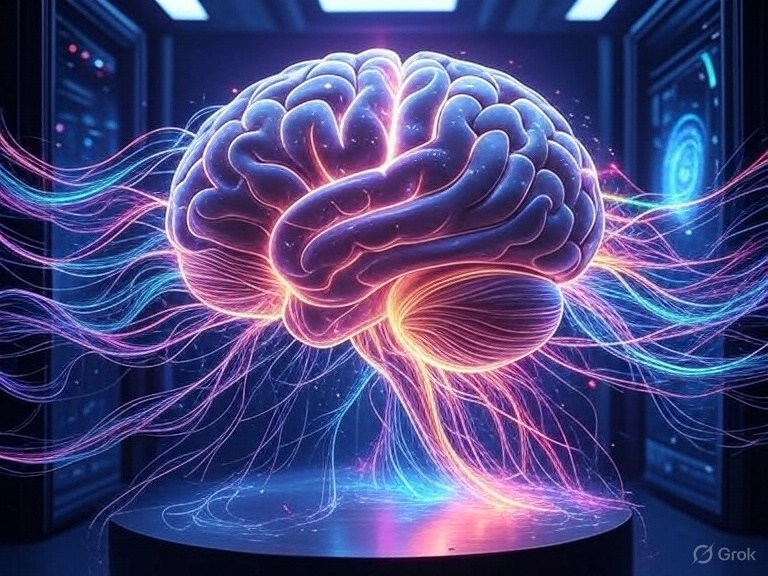For centuries, humans have dreamed of transcending mortality. From myths of eternal life to futuristic films about digital immortality, the idea of escaping the limits of the human body has fascinated us. But what if humanity finally achieved the unthinkable—uploading consciousness into machines? Would it be the dawn of immortality, or the beginning of a new kind of existential crisis?
The Concept of Consciousness Uploading
Consciousness uploading, also called mind uploading or whole brain emulation, is the theoretical process of scanning and mapping every neuron and synapse in the human brain, then transferring that data into a digital platform. In this future, your mind could exist inside a computer, a robot, or even a virtual reality world.
The idea rests on two assumptions:
- Consciousness can be fully mapped and digitized.
- A digital system can replicate the complexity of the human brain.
If these hurdles were overcome, humans could shed their biological limitations and live in forms beyond flesh and bone.
Why Would Humanity Upload Consciousness?
The motivations for digital immortality would be powerful:
- Escape from Death – Consciousness uploading could eliminate natural aging, disease, and accidents as threats to existence.
- Infinite Exploration – Digital minds could explore simulated universes, space networks, or even live across multiple systems at once.
- Efficiency – Without biological needs like food, sleep, or oxygen, consciousness could thrive in environments impossible for humans.
- Preservation of Knowledge – Humanity’s greatest thinkers could contribute to society indefinitely, passing wisdom across centuries.
This shift could redefine what it means to be human.

The Potential Benefits
If humanity successfully uploaded consciousness into machines, society could experience radical transformations:
- Immortality of the Mind – People could live indefinitely, upgrading hardware when needed.
- Post-Human Evolution – Digital beings might evolve intelligence far beyond biological limits.
- New Civilizations – Entire societies could exist in virtual realities, independent of physical resources.
- Faster Innovation – With minds operating at machine speeds, scientific breakthroughs could happen in days instead of decades.
- Colonizing Space – Instead of sending fragile humans into space, digital minds could travel as streams of data and operate robotic bodies on distant planets.
The result would be a civilization that exists both in physical and digital forms, blurring the boundary between man and machine.
The Risks and Ethical Dilemmas
Of course, such a radical leap would not come without dangers:
- Loss of Identity – Would the uploaded mind truly be you, or just a perfect copy with your memories?
- Digital Mortality – Viruses, hacks, or system failures could erase consciousness permanently.
- Control and Ownership – Who owns your consciousness once uploaded—you, the system, or the corporation running the servers?
- Economic Inequality – Only the wealthy might afford consciousness uploading, creating a divide between digital elites and mortal humans.
- Existential Crisis – Without death, would life lose meaning? Could eternal minds fall into despair or boredom?
These challenges could spark conflicts as society debates the true cost of digital immortality.
Society in a World of Uploaded Minds
If consciousness uploading became widespread, society would transform dramatically:
- Virtual Economies – Digital worlds could host new forms of work, entertainment, and social interaction.
- Redefined Family Structures – Relationships between digital beings and biological humans would challenge traditional ideas of love and family.
- Religious Implications – Some faiths might view consciousness uploading as blasphemy, while others see it as transcending human existence.
- Legal Systems – Governments would need to create rights and laws for digital citizens, addressing issues like marriage, property, and criminal justice.
- End of Human Medicine – If minds live digitally, biological medicine might decline, replaced by data preservation and cyber-defense.
This new reality would create a civilization more complex—and potentially more divided—than ever before.
Could Humanity Lose Its Humanity?
One of the greatest questions in this scenario is whether humans would still be “human” after uploading consciousness. If emotions, creativity, and free will survive in digital form, then humanity might endure. But if consciousness becomes cold, optimized code, we could lose the very essence of what makes us human.
Philosophers argue this could lead to post-humanity—a state where humans evolve beyond recognition, becoming something entirely new.
Conclusion
If humanity uploaded consciousness into machines, it could be the ultimate step toward immortality—or the end of humanity as we know it. The benefits are staggering: endless life, limitless exploration, and a future where death is optional. But the risks—loss of identity, inequality, and ethical chaos—could redefine civilization in unpredictable ways.
The real question is not whether it’s possible, but whether humanity will be ready to face the consequences of transcending the body and embracing a digital future.